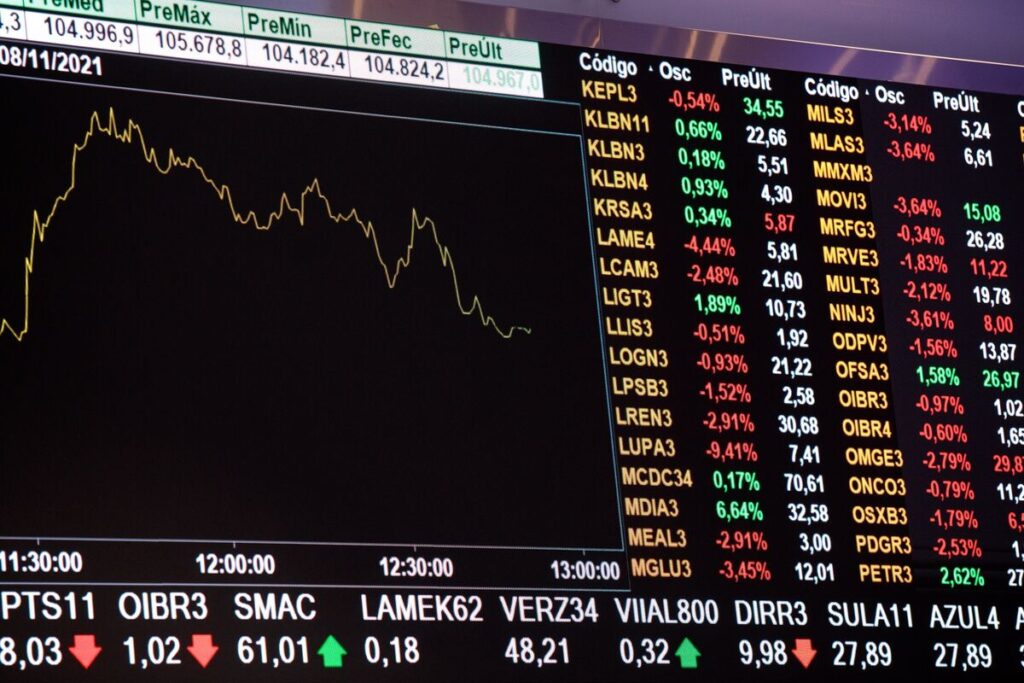
The stock market, also known as the equity market or share market, is a marketplace where equities of publicly listed firms are purchased and sold. It is an essential component of every economy and serves as a gauge of a country’s economic health. The stock market allows investors to purchase a piece of a company’s ownership in exchange for a share of the company’s income in the form of dividends and capital gains.
The stock market is often made up of exchanges where buyers and sellers may trade stock shares. The New York Stock Exchange (NYSE), NASDAQ, London Stock Exchange (LSE), and Tokyo Stock Exchange (TSE) are among the world’s major stock exchanges. To learn insights about stocks and investments, enroll in our Investment Banking Certification.
A brokerage company, which serves as a middleman between buyers and sellers, allows investors to acquire securities. Through their brokerage accounts, investors can place buy or sell orders, and the brokerage company will carry out the transactions on their behalf. Additionally, online brokerage houses provide investors with a more practical and affordable means of trading in stocks.
The stock market is vulnerable to swings because of a variety of things, including the state of the economy, world politics, and news about specific companies. To analyze stocks and make wise investing decisions, investors employ a variety of techniques and methods. To ascertain a company’s inherent worth, fundamental analysis entails examining its financial statements, management group, and competitive environment. To find trading opportunities, the technical analysis examines charts and other technical indicators.
To attain their financial objectives, investors might employ a variety of investment strategies, including value investing, growth investing, and dividend investing. In order to diversify their portfolios, investors can also invest in individual stocks, exchange-traded funds (ETFs), mutual funds, and other investment vehicles.
“The stock market is a device for transferring money from the impatient to the patient.” – Warren Buffet.
This quotation emphasizes the need of having a long-term outlook while investing in the stock market. Buffet believes that those who are impatient and focused on short-term profits are more prone to make rash judgments and lose money. Those who are patient and have a long-term view, on the other hand, are more likely to see their assets rise over time.
In the near term, the stock market can be volatile, with values shifting daily due to a number of economic and geopolitical variables. However, the stock market has historically produced positive returns over the long term, and patient investors willing to ride out short-term fluctuations are more likely to benefit from this trend.
Risks in Stock Marketing

Before making any investment decisions, investors should be informed that investing in the stock market has dangers. Investing in the stock market entails a number of significant risks, including:
1. Market risk
It is often referred to as systemic risk, is the possibility that all equities would experience a decrease in value as a result of a global economic or geopolitical catastrophe. All investors in the market are subject to market risk, which cannot be eliminated by diversification.
2. Company-specific risk
It is also called unsystematic risk, company-specific risk is the risk connected to the performance of a given firm. This risk is caused by, among other things, concerns with management, the law, and defective products. By investing in a variety of businesses across several industries, it can be decreased.
3. Liquidity risk
Liquidity risk is the chance that you won’t be able to swiftly or profitably sell your investment. Smaller firms or stocks with low trading volumes may have less liquidity, which can increase volatility and make it more difficult to sell the shares.
4. Interest rate risk
Interest rate risk is the chance that the stock market might be impacted by changes in interest rates. greater interest rates can result in greater borrowing costs for businesses, which can lower their earnings and lower the value of their shares.
5. Currency risk
Currency risk is a problem for investors who invest in equities of firms headquartered in foreign nations. Currency risk is caused by variations in exchange rates, which can reduce the value of investments.
6. Inflation risk
This is the risk that the value of your investments may depreciate owing to inflation. Inflation can cause the real worth of a company’s earnings to fall, resulting in decreased stock prices.
Preventing the Risks

While it is impossible to completely eliminate the risks associated with stock market investing, investors can use a variety of strategies to mitigate these risks. Among these strategies are:
Diversification: Investing in companies from several sectors and businesses can help lessen company-specific risk. Mutual funds, exchange-traded funds (ETFs), and index funds can help with this.
Risk Management: To manage their exposure to market risk, investors should adopt a risk management plan. Setting stop-loss orders to sell a stock if it falls below a certain price, or investing in options to hedge against market volatility, are two examples.
Research and Analysis: Investors should perform extensive study and analysis before making any investing decisions. This might include investigating a company’s financial documents, assessing its management team, and keeping an eye on industry developments.
Regular Monitoring: Investors should check their investments on a frequent basis to ensure they stay aligned with their investing goals and risk tolerance. This involves keeping track of individual stock performance as well as wider market trends.
Patience: Investing in the stock market demands patience and a long-term view. Investors should avoid making rash judgments based on short-term volatility and instead concentrate on the fundamentals of the company in which they invest.
Professional assistance: Investors may benefit from obtaining the assistance of a professional financial adviser to help establish a customized investment plan that takes their specific financial goals and risk tolerance into consideration.
Conclusion

To summarise, the stock market is a strong instrument for investors seeking to attain long-term financial objectives. However, it is critical to understand that investing in the stock market entails inherent risks such as market volatility, company-specific risk, and other external factors that can influence stock prices.
Diversification, risk management, research and analysis, regular monitoring, patience, and obtaining expert guidance are all ways that investors may use to reduce these risks. Investors can improve their prospects of long-term success in the stock market by employing these tactics.
Finally, investing in the stock market needs discipline, patience, and a long-term outlook. While there may be short-term fluctuations and market volatility, those who remain focused on their investment objectives and avoid making rash decisions based on short-term movements are more likely to see their investments grow over time.




